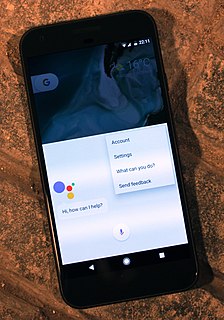
An intelligent virtual assistant (IVA) or intelligent personal assistant (IPA) is a software agent that can perform tasks or services for an individual based on commands or questions. The term "chatbot" is sometimes used to refer to virtual assistants generally or specifically accessed by online chat. In some cases, online chat programs are exclusively for entertainment purposes. Some virtual assistants are able to interpret human speech and respond via synthesized voices. Users can ask their assistants questions, control home automation devices and media playback via voice, and manage other basic tasks such as email, to-do lists, and calendars with verbal commands. A similar concept, however with differences, lays under the dialogue systems.

FaceTime is a proprietary videotelephony product developed by Apple Inc. FaceTime is available on supported iOS mobile devices running iOS 4 and later and Mac computers that run Mac OS X 10.6.6 and later. FaceTime supports any iOS device with a forward-facing camera and any Mac computer equipped with a FaceTime Camera. FaceTime Audio, an audio-only version, is available on any iOS device that supports iOS 7 or newer, and any Mac with a forward-facing camera running Mac OS X 10.9.2 and later. FaceTime is included for free in iOS and in macOS from Mac OS X Lion (10.7) onwards. Since the release of iOS 15 and macOS Monterey, non-Apple systems can be used to participate in FaceTime calls using a web client.

The Amazon Fire, formerly called the Kindle Fire, is a line of tablet computers developed by Amazon. Built with Quanta Computer, the Kindle Fire was first released in November 2011; it features a color 7-inch multi-touch display with IPS technology and running a custom version of Google's Android operating system called Fire OS. The Kindle Fire HD followed in September 2012, and the Kindle Fire HDX in September 2013. In September 2014, when the fourth-generation was introduced, the name "Kindle" was dropped. In September 2015, the fifth-generation Fire 7 was released, followed by the sixth-generation Fire HD 8, in September 2016. The seventh-generation Fire 7 was released in June 2017. The ninth-generation Fire 7 was released in June 2019. On the later model, the Fire tablet is also able to convert into a Smart speaker turning on the "Show Mode" options, which the primary interaction will be by voice command through Alexa.

Google Nest is a line of smart home products including smart speakers, smart displays, streaming devices, thermostats, smoke detectors, routers and security systems including smart doorbells, cameras and smart locks.
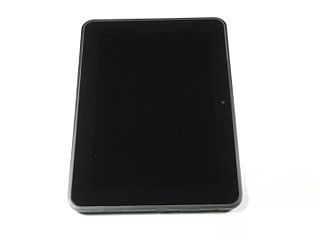
The Fire HD, also known as Kindle Fire HD, is a member of the Amazon Fire family of tablet computers. Fire HD refers to Amazon Fire family tablets with HD resolution. The ten generation Fire HD subfamily consists of: 7" & 8.9", 7", 6" & 7", 8" & 10.1", 8", 8" & 10.1", 8", 10.1", 8", and 10.1". These devices run the Fire OS operating system.

ecobee is a Canadian home automation company that makes smart thermostats, temperature and occupancy sensors, smart light switches, smart cameras, and contact sensors.

Ring LLC is a home security and smart home company owned by Amazon. Ring manufactures home security products that incorporate outdoor surveillance cameras, including the Ring Video Doorbell smart doorbell, and hosts an app, Neighbors, for online social sharing of captured footage among users. Ring also provides video footage from its cameras and data from its Neighbors app to law enforcement agencies on request. Its police partnerships have been criticized by civil rights advocacy groups as building an invasive private surveillance network.

BLU Products is an American company, headquartered in Miami. BLU rebrands low-cost mobile phones manufactured by ODMs such as QiKU, Gionee, Doogee and Tinno Mobile.

Chromecast is a line of digital media players developed by Google. The devices, designed as small dongles, can play Internet-streamed audio-visual content on a high-definition television or home audio system. The user controls playback with a mobile device or personal computer through mobile and web apps that support the Google Cast protocol, or by issuing commands via Google Assistant. Alternatively, content can be mirrored from the Google Chrome web browser on a personal computer or from the screen of some Android devices.
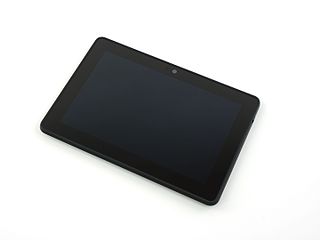
The Fire HDX, formerly named Kindle Fire HDX, was a high-end model in Amazon Fire line of tablet computers. It was announced on September 25, 2013 and is available in two models, 7 inch and 8.9 inch. The 7 inch WiFi model was released on October 18, 2013 and the 8.9 inch WiFi model was released on November 7, 2013 in the United States.
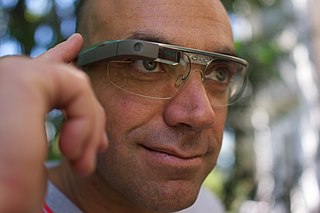
Smartglasses or smart glasses are wearable computer glasses that add information alongside or to what the wearer sees. Alternatively, smartglasses are sometimes defined as wearable computer glasses that are able to change their optical properties at runtime. Smart sunglasses which are programmed to change tint by electronic means are an example of the latter type of smartglasses.

Amazon Fire TV is a line of digital media players and microconsoles developed by Amazon. The devices are small network appliances that deliver digital audio and video content streamed via the Internet to a connected high-definition television. They also allow users to access local content and to play video games with the included remote control or another game controller, or by using a mobile app remote control on another device.
Amazon Echo, often shortened to Echo, is an American brand of smart speakers developed by Amazon. Echo devices connect to the voice-controlled intelligent personal assistant service Alexa, which will respond when a user says "Alexa". Users may change this wake word to "Amazon", "Echo", "Computer", as well as some other options. The features of the device include voice interaction, music playback, making to-do lists, setting alarms, streaming podcasts, and playing audiobooks, in addition to providing weather, traffic and other real-time information. It can also control several smart devices, acting as a home automation hub.

Google Nest, previously named Google Home, is a line of smart speakers developed by Google under the Google Nest brand. The devices enable users to speak voice commands to interact with services through Google Assistant, the company's virtual assistant. Both in-house and third-party services are integrated, allowing users to listen to music, control playback of videos or photos, or receive news updates entirely by voice. Google Nest devices also have integrated support for home automation, letting users control smart home appliances with their voice command. The first device, Google Home, was released in the United States in November 2016; subsequent product releases have occurred globally since 2017.

Google Assistant is an artificial intelligence–powered virtual assistant developed by Google that is primarily available on mobile and smart home devices. Unlike the company's previous virtual assistant, Google Now, the Google Assistant can engage in two-way conversations.
Amazon Alexa, also known simply as Alexa, is a virtual assistant technology largely based on a Polish speech synthesiser named Ivona, bought by Amazon in 2013. It was first used in the Amazon Echo smart speaker and the Echo Dot, Echo Studio and Amazon Tap speakers developed by Amazon Lab126. It is capable of voice interaction, music playback, making to-do lists, setting alarms, streaming podcasts, playing audiobooks, and providing weather, traffic, sports, and other real-time information, such as news. Alexa can also control several smart devices using itself as a home automation system. Users are able to extend the Alexa capabilities by installing "skills" such as weather programs and audio features. It uses automatic speech recognition, natural language processing, and other forms of weak AI to perform these tasks.
A smart speaker is a type of loudspeaker and voice command device with an integrated virtual assistant that offers interactive actions and hands-free activation with the help of one "hot word". Some smart speakers can also act as a smart device that utilizes Wi-Fi, Bluetooth and other protocol standards to extend usage beyond audio playback, such as to control home automation devices. This can include, but is not limited to, features such as compatibility across a number of services and platforms, peer-to-peer connection through mesh networking, virtual assistants, and others. Each can have its own designated interface and features in-house, usually launched or controlled via application or home automation software. Some smart speakers also include a screen to show the user a visual response.
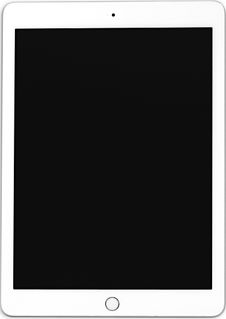
The iPad 9.7-inch is a tablet computer designed, developed, and marketed by Apple Inc. After its announcement on March 21, 2017, conflicting naming conventions spawned a number of different names, including "seventh-generation iPad" or "iPad (2017)".

Amazon Echo Show is a smart speaker that is part of the Amazon Echo line of products. Similarly to other devices in the family, it is designed around Amazon's virtual assistant Alexa, but additionally features a 7-inch touchscreen display that can be used to display visual information to accompany its responses, as well as play video and conduct video calls with other Echo Show users. The video call feature was later expanded to include all Skype users.
Wyze Labs, Inc., also known as Wyze, is a U.S. company based in Seattle, Washington, that specializes in smart home products and wireless cameras. Wyze Labs is a small start-up, formed by former Amazon employees.
















